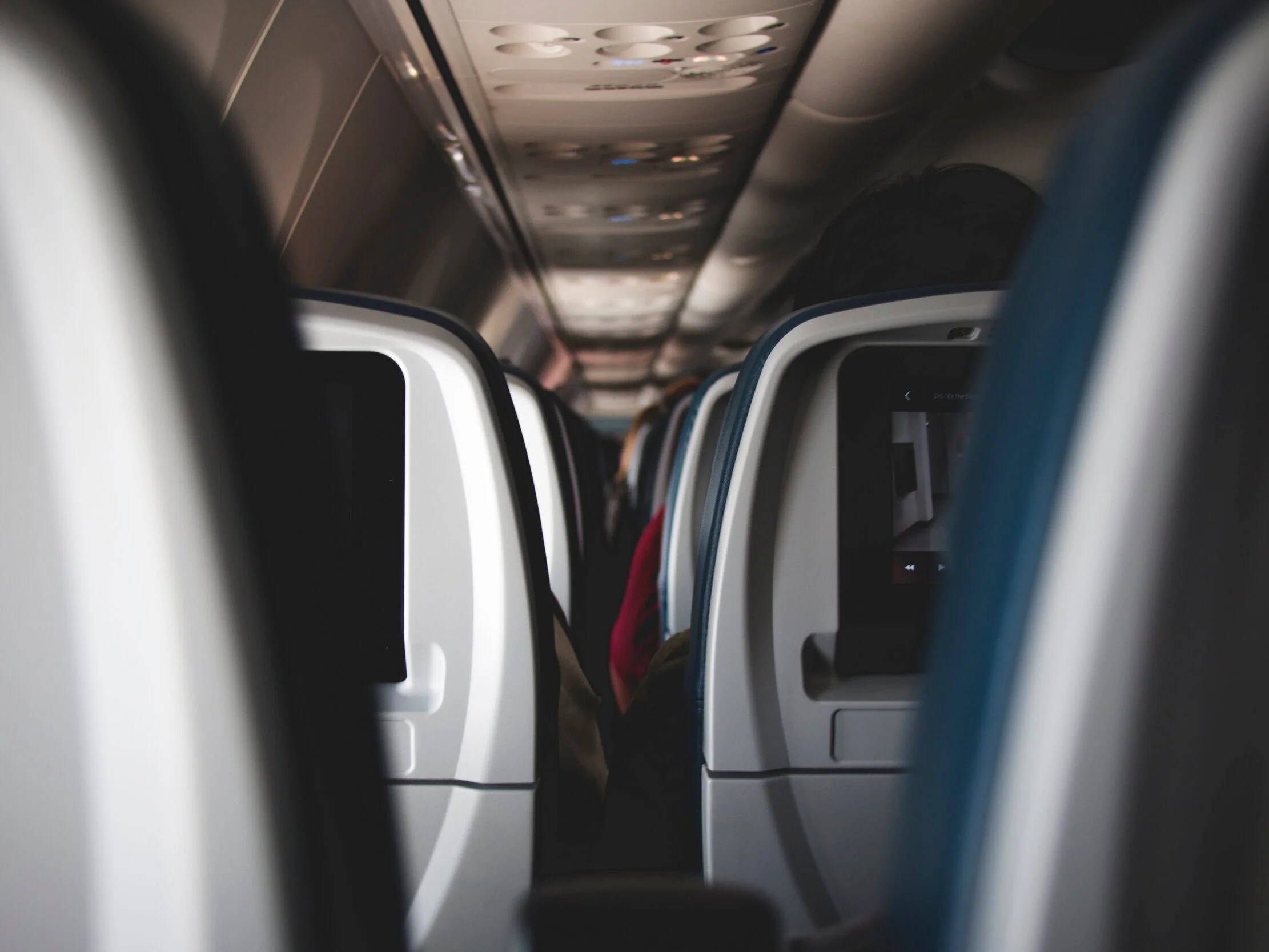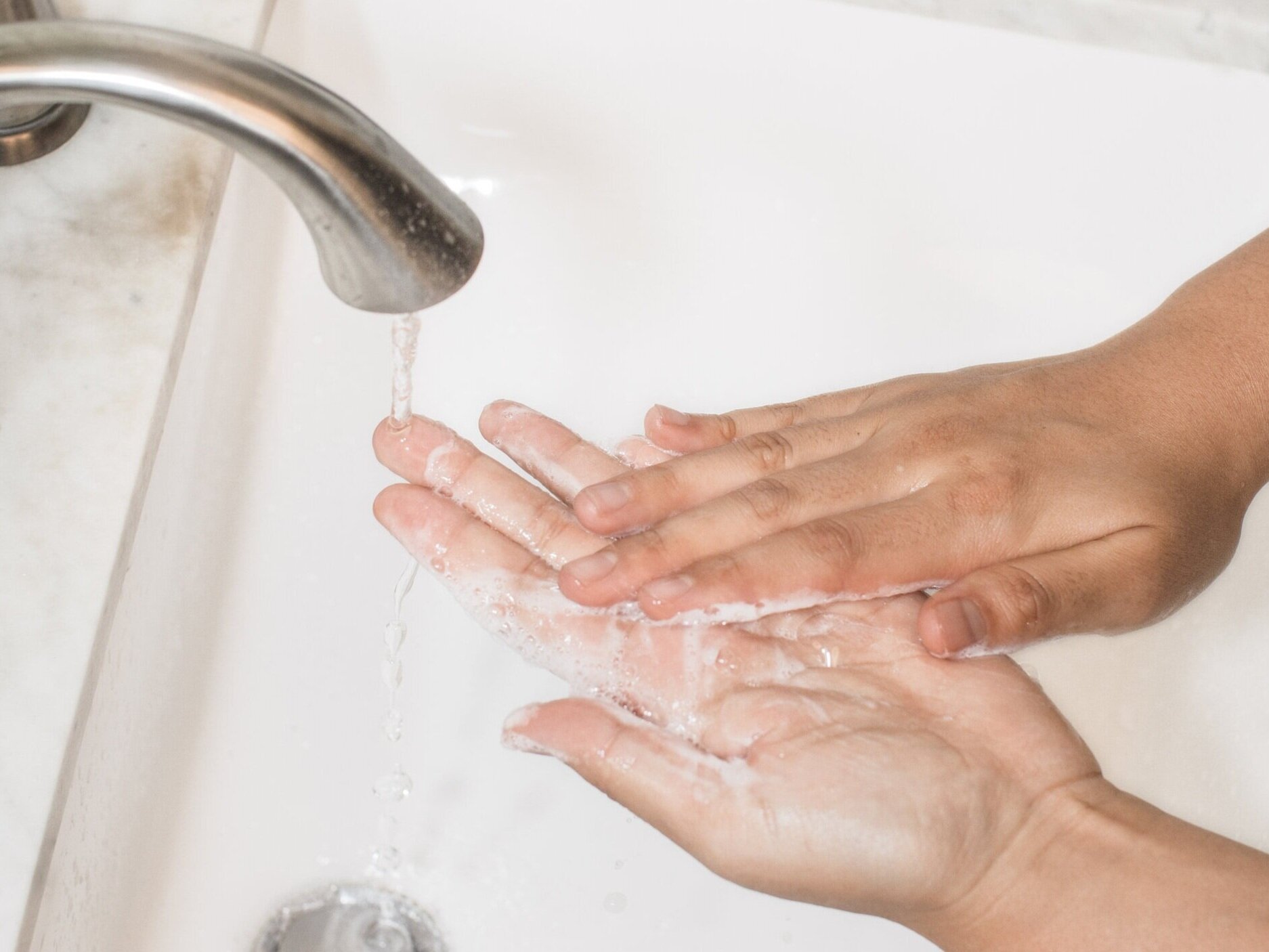Tips for travel hygiene and health during the Covid-19 outbreak.
Here is everything John covers in his video:
00:00 - 01:24
Hygiene tips for travelers
01:25 - 03:18
Tips to boost your immune system and what foods you should avoid
03:19 - 07:50
Supplements to consider taking*
With Covid-19 taking over headlines and business travel entering an uncertain time we wanted to get some expert advice for you on how you can still travel safe amid the coronavirus outbreak. We reached out to John Ayo, Travel Wellness expert, naturopath and author of Travel Balance for some tips on how to stay safe and healthy while traveling. Check out his video above for some expert tips.
*All suggestions are not medical advice and independent medical advice should always be sought if required.
The question on every business travelers mind… Is it safe to travel?
With companies all over the world putting a ban on business travel in the midst of the crisis, it is understandable that travelers are a bit wary before heading for the airport. As of February, 29 2020 the World Health Organisation is advising against travel restrictions however they are recommending that travelers that are sick should avoid or delay travel to the affected areas and the elderly and those with underlying health conditions should do the same. Cough, hand and food hygiene is essential and travelers returning from affected areas should self-monitor for symptoms for 14 days and follow the protocol of your country.
Are you more at risk on the plane?
While it is true that being in a confined space with an infected person increases your risk of getting the virus there is no need to panic. Almost all modern commercial airplanes are fitted with sophisticated HEPA filters (High-Efficiency Particle Filters) and the air inside the cabin is filtered (removing bacteria and viruses) and re-circulated regularly.
You also need to be in fairly close proximity to an infected person in order to catch the virus. The World Health Organisation recommends practicing social distancing of at least 1 meter from anyone that may be showing symptoms. Now, we know that’s not an easy thing to do while on a plane, but it is important to be aware of your surroundings and take precautions when you can.
Keeping your surroundings sanitized and disinfected is the best thing you can do to prevent yourself getting sick. Pack disinfectant wipes in your carry on and wipe down your seat, tray table, screen and seat belt buckle before you even sit on down. Check that wipes are at least 60% alcohol.
What should I being doing to stop the spread of Covid-19?
Make sure you wash your hands as much as possible. Some coronaviruses can survive on surfaces for days and when you touch those surfaces you run the risk of transmitting the virus to yourself and others. Washing your hand thoroughly and as often as possible will help stop the spread. If you do not have the option to wash your hands using hand sanitizers with at least 60 percent alcohol can be highly effective.
Also, make sure to keep your hands away from your eyes, nose and mouth. Your eyes, nose and mouth are all potential entry points for the coronavirus (and many other germs) so keep touching your face to a minimum. Many airports are going to great lengths to ensure high traffic areas are cleaned and disinfected regularly but it is good practice to avoid touching surfaces when you can and wash or sanitize your hands often.
Practice cough and sneeze hygiene by covering your mouth and nose with your bent elbow or a tissue if you cough or sneeze and dispose of the tissue immediately. It is best to dispose of the tissue in a closed bin and wash your hand immediately.
Remember, if you are feeling unwell, do not travel.
The most important thing you can do to help stop the spread of Covid-19 is to listen to your body, monitor how you are feeling and act accordingly. Do not travel if you are feeling ill or if you know you have had contact with an infected person. Symptoms of the coronavirus include a cough, a fever and difficulty breathing. If you are experiencing any of these symptoms seek medical attention immediately, following the guidelines of your local authorities.
How can you stay healthy while on the road?
One of the key things frequent travelers, or anyone really, should be thinking about at this time is, how can you boost your immune system so that you are in the best shape to fight a virus
Manage Stress
One of the most effective things you can do is manage and reduce stress. The coronavirus is all anyone can talk about and while it is important to stay informed, the media is not doing a great job at dispelling panic. Stress can have serious negative effects on your immune system, weakening it and making it less effective at fighting illnesses. One of the best ways you can strengthen your immune system is by practicing stress relieving activities such as meditation, exercise and breathing techniques. Find a quiet, empty spot at the airport (unused gates are a great option for this!), switch off social media and do some meditation and gentle stretching exercises to help relieve stress.
Eat healthy foods
Add lots of fruits and vegetables to your diet in order to help boost your immune system. If you tend to head to the fast food joint or the bar for a greasy burger when at the airport, make a change and find a healthier option instead. Avoid foods that have sugar, dairy or wheat and focus on nutrient rich vegetables and omega-3 fats.
Practice intermittent fasting
Digesting and processing food requires a lot of energy from your body. If possible, practice intermittent fasting (only eating within a small-time window) so that your body better preserves energy and can use it to help you fight infections and viruses.
Take Vitamin D supplements
Viruses absolutely thrive in the wintertime and one of the main reasons for this is that humans are lacking in Vitamin D during the winter months. When our skin is exposed to sunlight it produces Vitamin D and unfortunately sunlight tends to be lacking in the winter. Vitamin D deficiency has been proven to make you more susceptible to infections and weaken your immune system. Taking a Vitamin D supplement can help boost your immune system and make you less vulnerable to viruses and infections.
Other supplements to add to your diet
Iodine is vital for thyroid health which helps your bodies metabolism and energy creation. Your body needs high and healthy energy levels to fight infection. Hydrochloric acid (your stomach acid) helps kill any pathogens that make it to the stomach. High dose Vitamin C & Vitamin A help protect your cell walls and preventing viruses from getting in.
Phew, that’s a lot of supplements to remember! Why not head to your local health food shop and ask them for recommendations on a combined supplement to suit your needs. Essential oils are also great for improving well-being and you can get oil blends made specially to combat the stresses of frequent travel.
Taking care of yourself and your well-being, especially while traveling is so important. Staying healthy while on the road is about building good routines and maintain positive physical and mental health habits. Don’t let stress and media hype cloud your judgement when it comes to the covid-19 virus, or another other virus that we may face in the future. Take advice from the experts and remember prevention is key to maintaining a healthy and balanced life.





